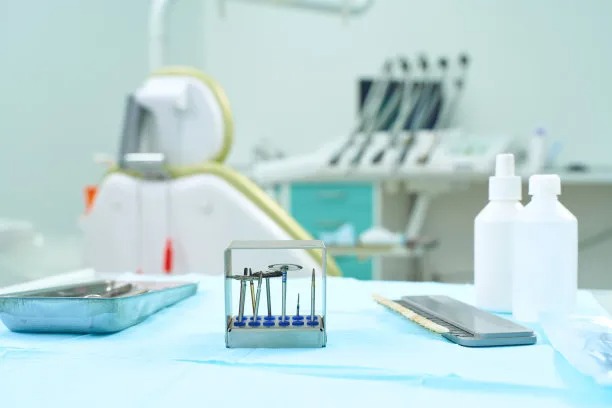Summary: Undergoing dental implant surgery can significantly improve oral health and aesthetics, but careful preparation is essential for ensuring a smooth recovery and the longevity of the implants. This article explores essential precautions to consider before dental implant surgery, focusing on understanding the procedure and its potential complications, choosing an experienced practitioner, preparing for recovery, and adhering to post-operative care guidelines. Each of these aspects plays a crucial role in optimizing the success of dental implants, enhancing overall patient satisfaction, and minimizing the risk of complications, ultimately achieving the best results after surgery.
1. Understanding the Procedure and Complications

Before undergoing dental implant surgery, it is crucial to have a thorough understanding of the procedure. Dental implants involve several steps, including the placement of the implant, osseointegration, and eventual restoration with a crown. Familiarizing yourself with these stages can help alleviate anxiety and set realistic expectations for recovery timelines.
Additionally, potential complications should be discussed with your dentist or oral surgeon. Knowing the risks involved, such as infections, implant failure, or nerve damage, enables patients to make informed decisions regarding their treatment options. Understanding these complications fosters better communication with your healthcare provider, ensuring any concerns are addressed in advance.
Lastly, ask questions about any specific health conditions that may influence the procedure. Conditions such as diabetes or osteoporosis can impact healing and the success of the implant, making it essential to disclose all medical history to your dentist prior to surgery.
2. Choosing an Experienced Practitioner
Selecting the right dental professional is key to the overall success of the implant surgery. Look for a dentist or oral surgeon with significant experience and specialized training in dental implants. Their expertise can greatly influence the surgical outcome and your recovery process.
It is also essential to review the practitioners credentials and patient testimonials. Reading about other patients experiences can provide insights into the quality of care and success rates of the procedures performed. Consider scheduling consultations with multiple practitioners to gauge their approach, communication style, and comfort level.
Finally, ensure that the practitioner utilizes modern technology and techniques. Advanced diagnostic tools, like 3D imaging, enhance planning and precision during surgery, which further increases success rates and optimizes healing.
3. Preparing for a Smooth Recovery
Preparing for a successful recovery starts long before the surgery date. A pre-operative consultation with your dentist is an important step. During this meeting, discuss necessary changes to medication, diet, and habits—such as quitting smoking, which can hinder healing processes.
Additionally, create a post-operative plan that includes assistance from friends or family. Organizing transportation home and arranging help for the first couple of days can significantly reduce stress and complications during recovery.
In the days leading up to surgery, maintain a balanced diet rich in vitamins and minerals to support healing. Adequate hydration and nutritional prep can provide your body with the necessary resources to recover efficiently after the procedure.
4. Following Post-Operative Care Guidelines
Adhering to post-operative care guidelines is crucial for the success of dental implants. Following your dentists specific instructions regarding pain management, oral hygiene, and dietary restrictions cannot be overstated. Proper care in the initial phases of recovery sets the stage for optimal healing.
Avoiding strenuous activities and adhering to prescribed medications helps manage pain and encourages healing. Gradually reintroduce normal activity levels based on your comfort and your dentists advice.
Finally, regular follow-up appointments are essential for monitoring the healing process and implant integration. These visits allow the dentist to address any issues early on, ensuring the long-term success of your dental implant.
Summary:
In conclusion, preparing for dental implant surgery involves understanding the procedure and its risks, selecting an experienced practitioner, preparing for recovery, and following proper post-operative care. Each of these crucial steps ensures the successful integration and longevity of dental implants, leading to improved oral health and enhanced quality of life.
This article is compiled by Vickong Dental and the content is for reference only.
Vickong Dental
Vickong Dental is a large medical group established in Hong Kong in 2008 by professors from well-known medical universities in Guangdong and Hong Kong, as well as medical doctors from key national '985' universities (including Master's supervisors and senior professors). The chain of branches brings together expert dentists with PhDs and Master's degrees from Hong Kong and Mainland China, committed to providing high-quality dental treatment.
"Vickong Dental Practices the University Motto of 'Healing and Serving Society,' with a Stable Operation for Sixteen Years. It Has Been honored with Hong Kong Enterprise Leaders's Choice,' and is a Global Trusted Implant Center for the Nobel Implant System. Recommended by Hong Kong Metro Broadcast and Guangdong Television, it Serves Customers from Over Thirty Countries and Regions, Gaining the Trust and Favor of Citizens from the Guangdong-Hong Kong-Macau Greater Bay Area and Surrounding Cities.

Thousands of customers' unanimous praise
The most recognized and highly recommended dental service by customers in the Guangdong-Hong Kong-Macau Greater Bay Area
We Ensure You Receive Detailed Care and Attention Here
Hong Kong standards, Shenzhen prices, Your Trusted English-speaking dentists

Vickong Dental Medical-Grade Instrument Disinfection Process
Vickong Dental Medical-Grade Instrument Disinfection Process

Vickong Dental Chain: A Warm and Comfortable Environment for Treatment






Appointment Hours

Q&A
Why choose Vickong Dental?
Vickong Dental practices the university motto 「Medicine to Benefit Society」, with each branch bringing together highly qualified dentists with doctoral and master’s degrees from Hong Kong and the Mainland, and has maintained seventeen years of steady operation。Recipient of 「2024 Hong Kong Enterprise Leaders Brand」, 「2025 Hong Kong Enterprise Leaders Brand」, a Nobel Biocare Global Trusted Implant Center, and a brand recommended by Metro Radio Hong Kong and Guangdong TV。
To date, we have served customers from more than thirty countries and regions,earning exceptionally high word-of-mouth recognition and trusted recommendations from residents across the Guangdong-Hong Kong-Macao Greater Bay Area and surrounding cities
We have eight major branches in Zhuhai、Shenzhen,and a consultation and service assurance center in Hong Kong,so you can book a free consultation at any time for any questions,which is very reassuring.
If I do not accept the quotation after the CT scan, will I be charged??
No! As long as the actual treatment has not started, you will not be charged any fees.
Will there be any additional charges during the treatment process?
No, there won’t be any additional charges. Before treatment begins, we will clearly explain the treatment plan and its corresponding fees. Only after the patient agrees and signs the consent form will we proceed with the dental service.
Can I pay in Hong Kong dollars?
Yes. Vickong Dental accepts payment in Hong Kong dollars. The amount will be converted based on the exchange rate of the day, and the applicable rate will be clearly communicated to you in advance.
Can I reschedule my appointment at any time?
Yes. Please contact us via **WeChat** or **WhatsApp** as early as possible, providing your original appointment time and details, along with your preferred new date and time slot for rescheduling.













